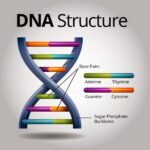Genetics, the study of heredity and variation in living organisms, is a profoundly interdisciplinary field. Understanding its intricacies requires a robust foundation in several core scientific subjects. A firm grasp of these disciplines allows for a more complete and nuanced appreciation of genetic mechanisms and their implications.
Biology: The Bedrock of Genetic Understanding
At its heart, genetics is a subdiscipline of biology. Therefore, a comprehensive understanding of fundamental biological principles is absolutely paramount. This includes delving into cell biology, which explores the structure and function of cells, the basic units of life. You’ll need to comprehend the roles of organelles, the processes of cell division (mitosis and meiosis), and the intricacies of cellular signaling pathways.
Furthermore, a solid grounding in molecular biology is crucial. This field focuses on the molecular basis of biological activity, including the structure and function of DNA, RNA, and proteins. Readers can expect to encounter concepts like DNA replication, transcription, and translation, the central dogma of molecular biology. Understanding enzyme kinetics and protein folding is also essential. Without a strong biological foundation, deciphering genetic concepts becomes considerably more challenging. Familiarity with evolutionary biology is also incredibly important, as it provides context for understanding the origins and diversification of genetic variation.
Chemistry: The Language of Molecules
Genetics operates at the molecular level, making chemistry an indispensable subject. A strong understanding of basic chemical principles, including atomic structure, chemical bonding, and the properties of different types of molecules, is required. This includes organic chemistry, specifically focusing on the structure and reactivity of biomolecules such as carbohydrates, lipids, proteins, and nucleic acids.
Readers should be prepared to grapple with concepts such as functional groups, isomerism, and stereochemistry, all of which influence the biological activity of molecules. Moreover, biochemistry, the study of chemical processes within living organisms, is pivotal. It elucidates metabolic pathways, enzyme mechanisms, and the flow of energy within cells. Grasping concepts like Gibbs free energy and equilibrium constants will be incredibly helpful in understanding biological processes. A solid foundation in thermodynamics is also beneficial for understanding bioenergetics. Without chemistry, understanding the molecular machinery that drives genetic processes is virtually impossible.
Mathematics: Quantifying Genetic Phenomena
While often overlooked, mathematics plays a vital role in genetics. It provides the tools to quantify genetic phenomena, analyze data, and build predictive models. Basic algebra and calculus are essential for understanding population genetics, which deals with the genetic variation within and between populations. Readers can expect to use mathematical models to predict allele frequencies, calculate mutation rates, and analyze the effects of natural selection.
Statistics is particularly important for experimental design and data analysis. Understanding statistical concepts such as hypothesis testing, p-values, and confidence intervals is crucial for interpreting experimental results and drawing valid conclusions. Furthermore, bioinformatics, a rapidly growing field that combines biology and computer science, relies heavily on mathematical and computational methods. Expect to encounter algorithms for sequence alignment, phylogenetic analysis, and gene expression analysis. Probability theory forms the basis for many genetic analyses, such as predicting the likelihood of inheriting specific traits. Essentially, mathematics provides the framework for analyzing and interpreting the complex data generated in genetic research.
Statistics and Data Analysis: Interpreting Genetic Information
Given the vast amounts of data generated in modern genetics research, a solid understanding of statistics and data analysis is essential. This includes familiarity with various statistical tests, such as t-tests, chi-square tests, and ANOVA, used to analyze experimental data and determine statistical significance. Readers should also be proficient in using statistical software packages to perform data analysis and visualization.
Furthermore, understanding concepts such as regression analysis, correlation, and principal component analysis is crucial for identifying patterns and relationships in genetic data. The ability to critically evaluate statistical analyses and interpret results is paramount for drawing valid conclusions from genetic studies. Data visualization techniques, such as creating graphs and charts, are also essential for effectively communicating research findings. Proficiency in bioinformatics tools and databases is increasingly important for accessing and analyzing genomic data. Without statistical literacy, it’s difficult to properly evaluate and interpret genetic information.
Computer Science: Navigating the Genomic Age
With the advent of high-throughput sequencing technologies, genetics has become increasingly reliant on computer science. Bioinformatics, as previously mentioned, integrates computational tools and techniques to analyze large-scale genomic data. Readers should expect to encounter concepts like algorithms, data structures, and databases. Familiarity with programming languages such as Python or R is becoming increasingly valuable for automating data analysis workflows.
Furthermore, understanding concepts such as machine learning and artificial intelligence is important for developing predictive models and identifying novel genetic associations. Genomic databases, which store vast amounts of genetic information, are essential resources for genetic researchers. The ability to access, query, and analyze data from these databases is a crucial skill. Cloud computing and distributed computing are also becoming increasingly important for handling the massive datasets generated in genomics research. Computer science empowers researchers to manage, analyze, and interpret the deluge of data generated in modern genetics, thereby accelerating scientific discovery.










Leave a Comment